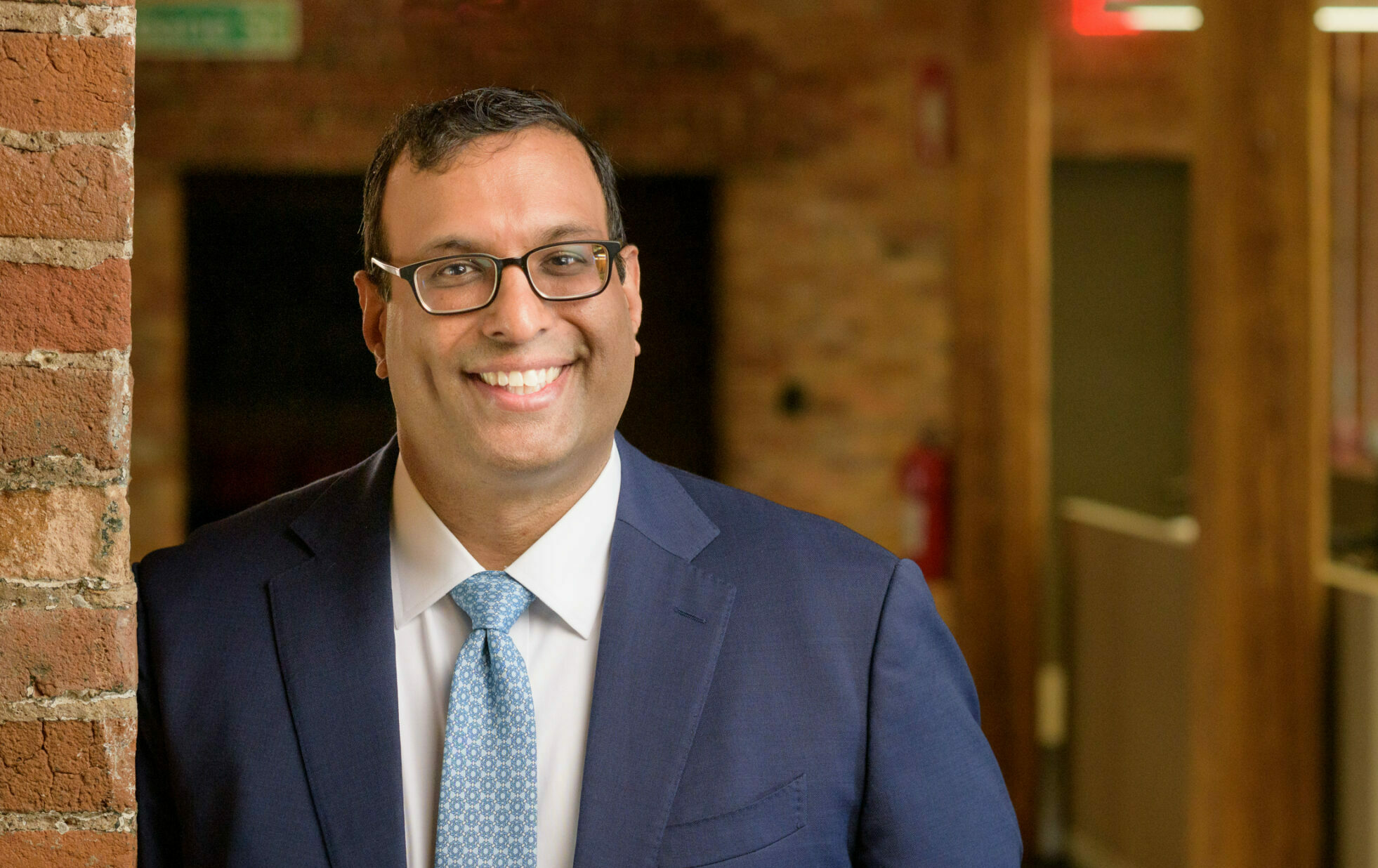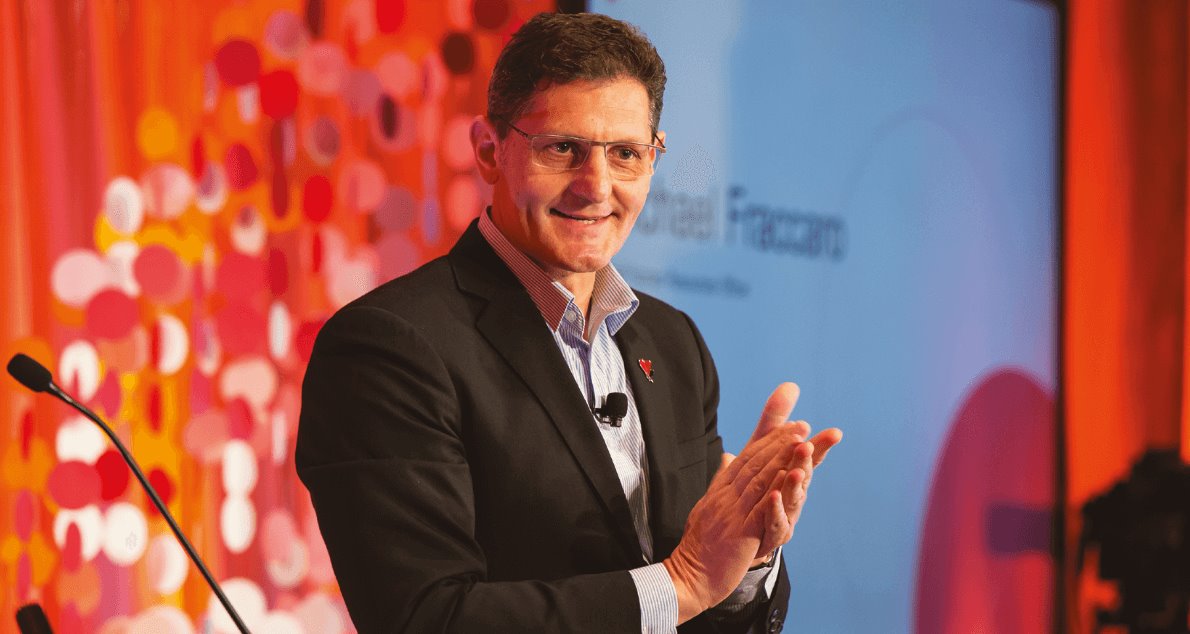Sadhguru believes that humans must learn to harness the immense power and possibilities within.
Sometimes the newest ideas date to time immemorial. At the coming of the industrial age, people were ‘labour’: essentially little more than mere extensions of the great machines they operated. By the advent of the information age, they had become ‘human resources,’ a unique resource that could be deployed by industry to generate a return.
Jagadish Vasudev, the Indian yoga guru and author honoured as Sadhguru, believes that the digital age requires going back to the future. Labour, human resources; these should be framed as something radically new – yet profoundly ancient: people.
“The way we need to think about people is in fact a very old way of thinking about people,” Sadhguru says. “Because the current way of thinking about people is they’re some kind of material that you have to use.”
Sadhguru skewers the way that humans have become synonyms for the supply and demand for products. “When I’m at the [World] Economic Forum, I hear everybody referring to India as an emerging market,” he says of his native country. “We are not a market, we are a people. If you see me as a person, you will seek what is best for me. If you see me as a market, you will seek whatever stuff you have, because you want to sell it to me.”
What does this probing critique mean for leaders? “That fundamentally, the point of business is human wellbeing,” he says. “We should not forget that.”
Initially, this call-to-arms challenges the teachings of Peter Drucker (“the purpose of business is to create a customer”) and Milton Friedman (“there is one and only one social responsibility of business… to increase its profits”). Yet Sadhguru suggests his is as much a commercial teaching as an ethical one. “Whatever business we may be doing, if it’s not relevant to human wellbeing, it’s not really a business and it will not be a business for too long,” he says. “For some time, you might manage. But after some more time, you won’t.” Leaders, Sadhguru argues, have a primary duty to improve the wellbeing of their colleagues, as well as that of their customers.
He contrasts humans with similar non-human species to show why nurture is more significant in the development of people than in other animals. “For all other creatures, 90% of their life and characteristics are determined by nature,” Sadhguru says. “There may be just 10% latitude of personality and capabilities between one tiger and another tiger; between one buffalo and another buffalo. But when it comes to a human being, only 10% is fixed by nature,” he continues. “The remaining 90% has to be nurtured.”
Yet Sadhguru rejects the notion that nurturing is the exclusive domain of early years care, a temporary process with a beginning and an end. “Most people think nurture happens only in our mother’s laps,” he says. “No. Nurture has to happen throughout life, because the human possibility is a continuous possibility. A human being is not a constant. A human being is not an absolute. A human being is an evolving process. Are we the same people as we were when we were 15 or 20 or 30 or 40? Today, we are something else. Whether you are in a family or in a business or a job, if you want to get the best out of people, you need to nurture them into a higher level of possibility.”
Too many business leaders consider people a resource “with specific qualities” and we place them in roles so we can exploit those qualities, Sadhguru contends. “But if a business is interested in exploring – not exploiting – its human potential, then it must create a very rich soil, an ecosystem where humans can naturally find that nurture within themselves.”
Human competence
Sadhguru’s demand that leaders lay the groundwork for employees to nurture themselves comes at a pivotal moment. The advent of big data is leading to knowledge being commoditized, and enabling an exponential increase in what machines can do. And, therefore, intelligence, insight and creativity command ever greater premiums. “It is no longer just about knowledge, because knowledge is on the digital platforms,” says Sadhguru. “What is needed is keenness of intelligence and attention.”
The sheer rapidity of technological advance means that certifications and qualifications are outdated as soon as they are conferred, he argues. No longer can someone’s ability be assessed purely by qualifications, less still by heritage. “In the last 70 years – 100 at most – you flew by certificate, not by competence,” he says. “But fortunately, change is happening. We are coming to a place once again where human competence is what matters, not the certificate that you carry.”
He draws a sharp comparison with the shared history of our respective nations – the United States and India – shrugging off the yoke of heritage and hierarchy and embracing individual endeavour. “We worked so hard to escape the monarchy and to become a democracy,” he says. “What that means is that we don’t care who your father was. We only care who you are right now.”
Can organizations, leaders and individuals complete a similar journey? Sadhguru says that, to survive, it is imperative they do. But he stresses that conventional education is stuck on the wrong path, championing certification over competence. “At first it was like this: ‘you are somebody’s son, so you are qualified for this’,” he says. “Later it became, ‘you studied at this university, so you will fly.’ That is all going to go away.”
The focus on the giving of knowledge is somewhat nonsensical, he argues, in an age when knowledge is freely available. “The flaw is in the education systems,” he says. “Education systems always talk about memory. If I read a textbook and if I can write the same thing on my examination paper, I will be considered brilliant. Today, it’s meaningless because my phone carries more memory than 100 people can have in their head.”
The certification approach favoured by traditional education is simply another way of creating a hierarchy: business kings and queens who are authorized to run organizations by dint of qualification or heritage. “Through education, we are still trying to create a pedigree!” he says. “With qualifications, we are trying to create a pedigree of human beings. Yet how we transact, how we conduct business, is altering rapidly.”
Yet if certificates and qualifications are fool’s gold, where is the real bounty? How should people ready themselves for a world where success is born of insight and vision rather than the accrual of facts? “You must pay attention to only that which is there right now,” he says. “That means you’re involved with the existential. I see too many people who are involved with their own memories and imaginations – which don’t exist right now.”
This emphasis on what is – rather than what was, or what might be – is rare, he says. “Understanding memory as intelligence is a huge mistake,” he says. And imagination, a much-vaunted quality, is merely a linear extrapolation of our experiences. “When we say imagination, we think imagination is something new. No. Imagination is just an altered projection of our memory – an exaggerated projection.”
Is imagination overrated? Many people are diligent planners, creating prognoses for distant or hypothetical outcomes. “You need imagination to plan,” says Sadhguru. “But planning is not the most important thing. Purpose is more important. If you have a purpose, plans will fall to you. Every day you will evolve a new plan. As your situation changes, you will evolve a new plan. But if you have no sense of purpose, you will have no attention to what is there right now.
“The most important thing is keenness of attention. If you pay attention, there is nothing in this universe that you can do that is new – it is all already here.”
Nurturing people
What is here right now – and has been for 200,000 years of human evolution – is infinitely superior to our inventions. We simply haven’t paid it enough attention. “The finest electronics is right there in the human body,” says Sadhguru. “Fine mechanical systems, digital processes, everything is here, we just forget about them. The computers or digital instruments that we manufacture and create are just a small fallout from the digital infrastructure that we have within our own bodies. But we are not paying attention to that. If we had paid attention to it, the digital age that you’re experiencing right now could have been reached 10,000 years ago.” This is a mind-blowing argument: humans have stunted their own progress by ignoring not what is in front of their nose, but behind it. How can people who lead people create that fertile soil, so those they work with can harness the incredible power inside each of us?
“The one important thing that all business leaders should understand is that nobody likes to be managed,” warns Sadhguru. “Because management is for material. We can manage material. You don’t manage human beings. You must nurture them, because life enjoys being nurtured. No form of life enjoys being managed.”
This challenges some long-standing ideas of what it means to lead and many of our long-standing people practices and tools. Leaders should focus less on reporting and structures: the manmade elements of an imaginary world of work. Instead, the key is to deeply understand who our people are, to nurture them. Rather than say, “Here’s the work that needs to be done, let me see how fast you can work, or how useful you are to me”; say, “Who do I have here, and how can I best nurture these folks who are around me to bring out their possibilities?”
While this may sound idealistic, Sadhguru argues the exact opposite. If we understand our people, we let them do what they want to do, rather than pushing them all into pre-described roles (which they themselves find undesirable), our organizations will prosper. It may be profoundly practical advice: we are seeing examples of companies moving in this direction, building the work around the people they have.
Sadhguru recognizes the practical fact that all people are not the same. “There are different types of people,” he says. “You can’t put all of them in one bucket. Some people have come to you or your organization just to earn a living, they are not interested in anything more. There is nothing wrong with that. That’s how they are. That’s their thing.” Leaders should welcome that. “I know many people who don’t even want to climb the ladder. They don’t seek promotions because, if you seek a promotion, you will have to go to some other country, somewhere else, and life just gets harder for you. And they are very important because we need some strong nuts and bolts who stay right there, who are happy doing the same thing for the rest of their lives.”
Other people, he says, are adventurers, who have the potential to devise a genius idea. These too must be identified, and nurtured, and allowed to fail safely: “Giving room for that spark of genius is very important, because otherwise you will become a stagnant sedate machine, which itself might mean death in today’s business world, because business situations are changing so rapidly.”
In the time before industrialization, the tillage of the land held the key to human progress. Good farmers knew that given the right site, the correct soil, the optimum level of sunshine and a steady supply of water, their crops would thrive. They didn’t directly manage each plant – they shaped the ecosystem so all the diverse, and often dissimilar, crops on their land could flourish.
“This is something business leaders should do,” says Sadhguru. “Nurture both genius on one level and a sedate, stable atmosphere at another level. Everybody cannot be put in the same bucket.”
The power inside humans has exceeded that in technology for 200,000 years. Now, with an exponential proliferation of technology changing all aspects of business and life, Sadhguru reminds us that leaders have a duty to improve the wellbeing of their customers and colleagues. And great leaders nurture what has always been there in nature: ingenuity, creativity, possibilities.
It is a transformational idea: to shift our paradigm for leadership from managing people to nurturing possibilities. Its time has arrived.




